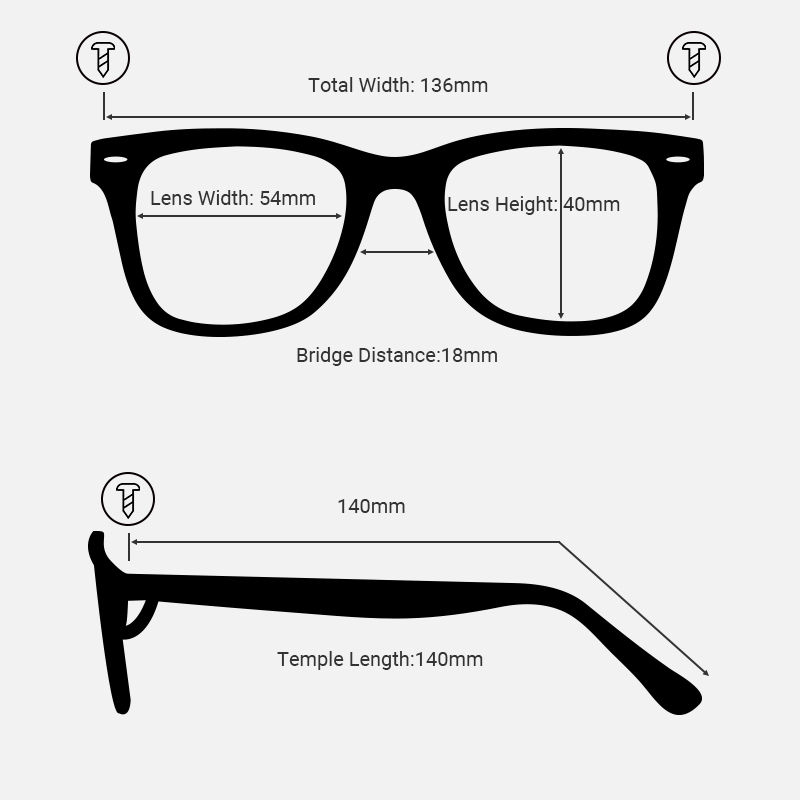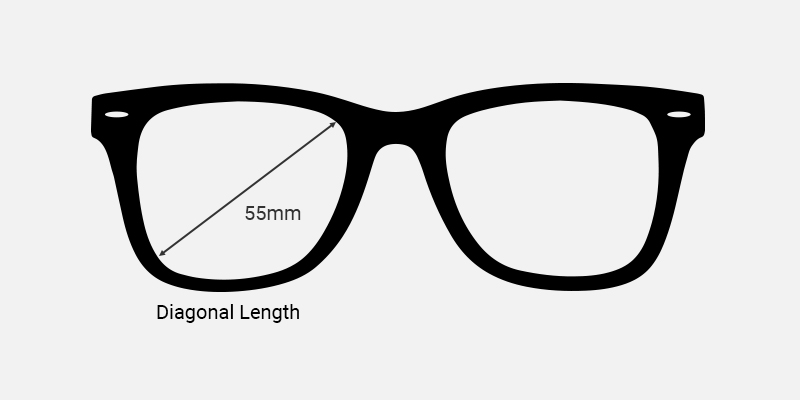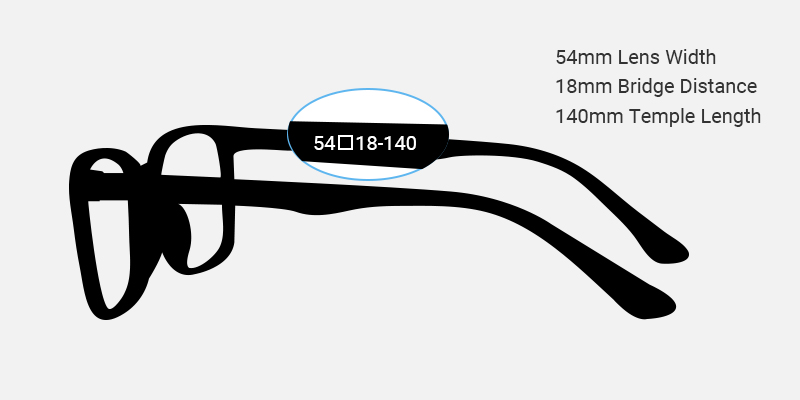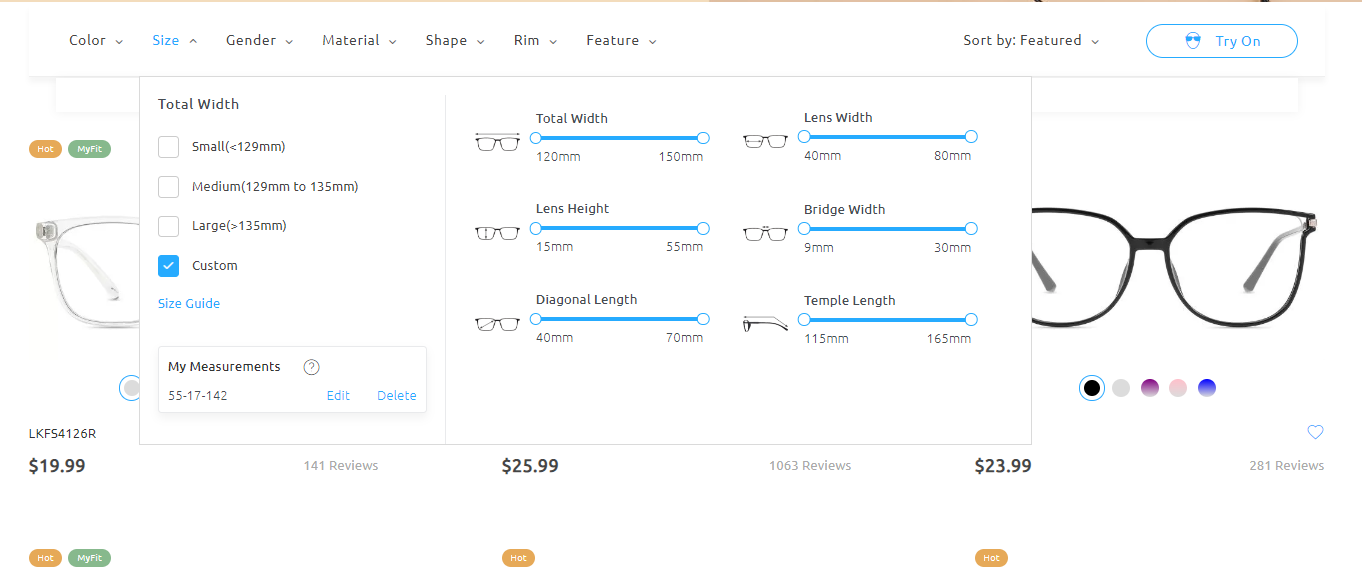Buy One Get One FREE + 20% Off Any Lens Upgrades
How do I find the perfect size frame?
1. Measure your old pair of glasses to get the dimensions that fit you the best. With these measurements, you can easily compare them to the frames on our website. Please see the photos below for guidance on frame measurements (a 2mm difference is acceptable).


Diagonal length refers to the diagonal measurement of each lens, corner to corner.
2. You may also find the dimensions printed on the temple arm of your old glasses.
- 54 stands for Lens Width, which is the horizontal width (in millimeters) of each lens.
- 18 stands for Bridge Distance, which is the distance (in millimeters) between your two lenses.
- 140 stands for Temple Length, which is the length (in millimeters) from each screw to its temple tip.

3. Try on some glasses at a local optical store, note the size that fits you and then find a similar size on our website.
4. We divide our frames into 3 categories: Narrow, Medium and Wide. The size represents the total width of the frame:
Narrow: Total Width <129mm
Medium: Total Width 129mm to 135mm
Wide: Total Width > 135mm
You can use these sizes to filter results when searching for frames on our website.

Was this answer helpful?

Copyright © 2025 Firmoo Online Optical Store.All Rights Reserved






